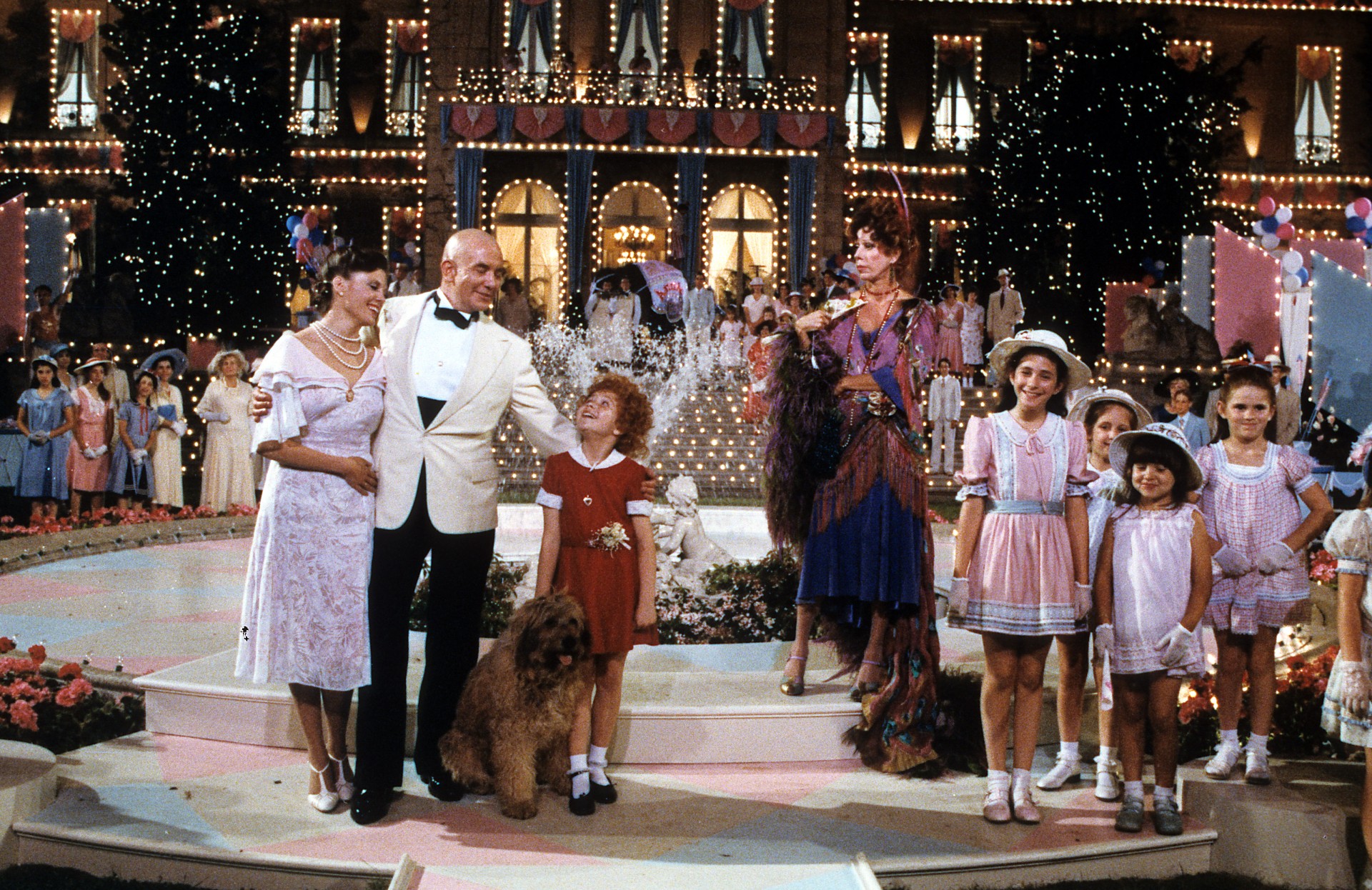It would not surprise you to learn that Little Orphan Annie is a comic strip about a little orphan named Annie. Debuting in 1924, Harold Gray’s strip follows the adventures of the red-headed Annie; her dog, Sandy, and the rich Oliver “Daddy” Warbucks. Gray took the title from James Whitcomb Riley’s poem “Little Orphant Annie.”

The earlier strips do have a (small “c”) conservative mindset — that goodness and hard work will allow people to succeed and that helping each other out is the way to go. Annie is self-reliant and a troublemaker, certainly, but she’s an advocate for those in need. And unlike his cruel, social-climbing wife, “Daddy” Warbucks is almost an idealized rich person. Sure, he made his money during the war, but his wealth allows him to aid people who are out there working hard.
I only read The Complete Little Orphan Annie Vol. 1: Will Tomorrow Ever Come? Daily Comics 1924-1927 so I can’t speak to the later comics but it is worth noting that Gray’s comic became more big C Conservative as it progressed.
The stories are repetitive — “Daddy” Warbucks has to travel for business or is otherwise separated from Annie, so Annie is either sent back to the orphanage or she runs away. She meets kindly farmers or other assortments of practical but struggling “real” people. She’s reunited with Warbucks. Then the circumstances repeat. Gray’s thin, delicate linework is both playful and complex and he definitely grows as an artist as the strip progresses.
It’s certainly old-fashioned and while I wasn’t surprised by that, it does make connecting with it a bit difficult. I liked Annie, though, and I liked “Daddy” Warbucks quite a bit. They’re fun together. I do think Gray was harsh toward women, though, and they typically fall into “coldly status seekers” or “sweet saints.” The comic is particularly critical toward Warbucks’ wife — Gray seems to be saying money makes men better people but turns women awful. But progressiveness is not something I was expecting from this.
Annie (1982, directed by John Huston) was not the first film adaptation of the comic strip — there were two from the 1930s — but it’s the best known.
The movie itself is adapted from the Broadway musical that debuted in 1977. The musical’s writer Thomas Meehan kept the basic idea of Annie, Sandy and “Daddy” Warbucks and wrote his own original story around it. The music was by Charles Strouse and lyrics by Martin Charnin. Carol Sobieski wrote the movie. Are you keeping up? We have an adaptation of an adaptation of a comic strip that took its name from another poem.
I’m not going to explain the plot of Annie to you. You’ve seen Annie. You’ve seen the movie a few times by accident and you’ve probably seen the musical. I’m sure there’s a production of it happening in your local community right now.
The movie does shift some things around — it’s summertime rather than around Christmas. A few songs have been added (and others removed). There is an appropriately climactic final scene involving car chases, a helicopter and climbing up a railroad bridge.
Overall, I like the cast. Carol Burnett as Miss Hannigan is having a blast. Albert Finney makes a fine “Daddy” Warbucks although his quick pivot from angry to tender doesn’t quite work. Aileen Quinn is cute enough as Annie. Tim Curry and Bernadette Peters are also having a good time here and understand what movie they were in.
I really question the decision to include Punjab (Geoffrey Holder) and The Asp (Roger Minami) in this movie, though, because there isn’t a strong reason for them to be here and the characters are racist stereotypes. I will give the movie a few points for at least not casting white people in roles but “not as racist as it could be” is still “racist.” I found them to be an unfortunate distraction.
It’s a musical and all musicals succeed or fail by their songs. I’m not a huge fan of the songs in Annie but they are what they are. There are so many of them, though! There are too many songs in this movie, even if it is a musical! Many songs go on too long as if they wanted to make sure everyone got a brief solo or the spotlight. And that sort of thing is fine for an elementary school play but it just made things go on too long. It’s not a complex story so too many of the musical sequences felt like padding.
Huston is a great director and I can understand why he wanted to do a big Hollywood musical since he never had before, but this movie did not bring out his strengths. It all feels too big without meaning much and detracts from the characters at the heart of the story.
I do think the story overall does a decent enough job of capturing the spirit of the comic even with the changes made here. I’ll give it a few points for that.
Annie was not a beloved part of my childhood or anything, but it was pretty ubiquitous there for a while. Watching it as an adult made me understand why it was. It also made me understand it’s just not very good.
Since they can’t stop making Annie, a made-for-TV version aired in 1999 (that was more faithful to the Broadway play, though) and a theatrical version in 2014. I will cover both of those on my Patreon later this week. (I am not going to cover Annie Live! from last year because I don’t know how much more Annie I can take.)

